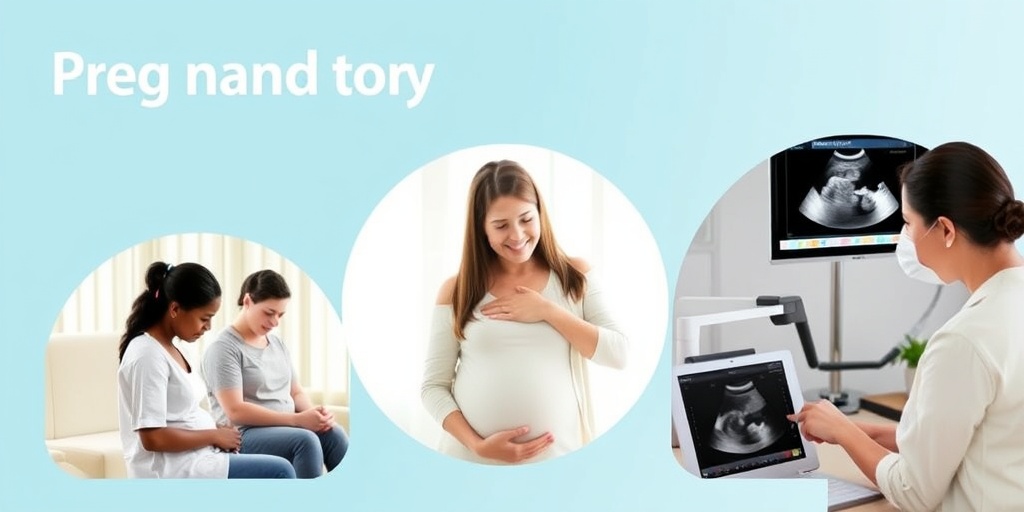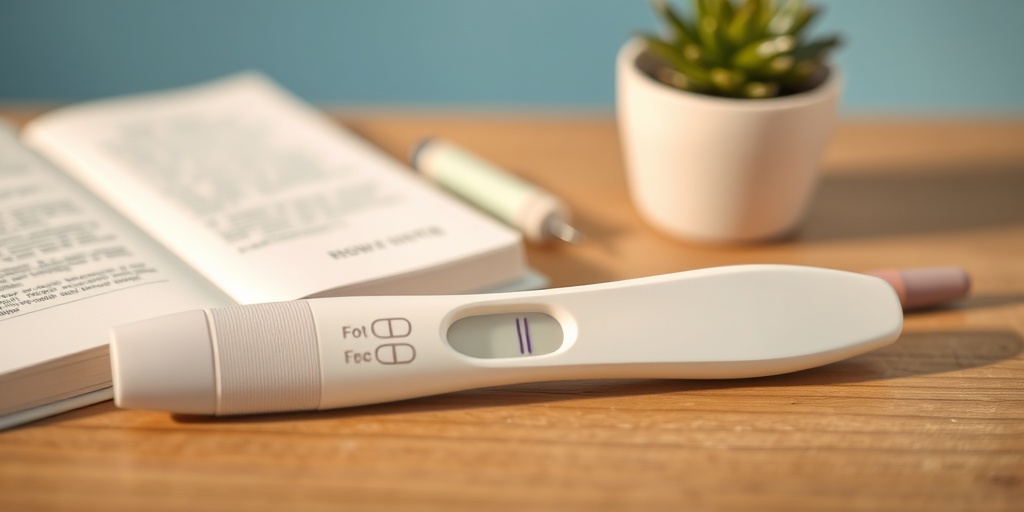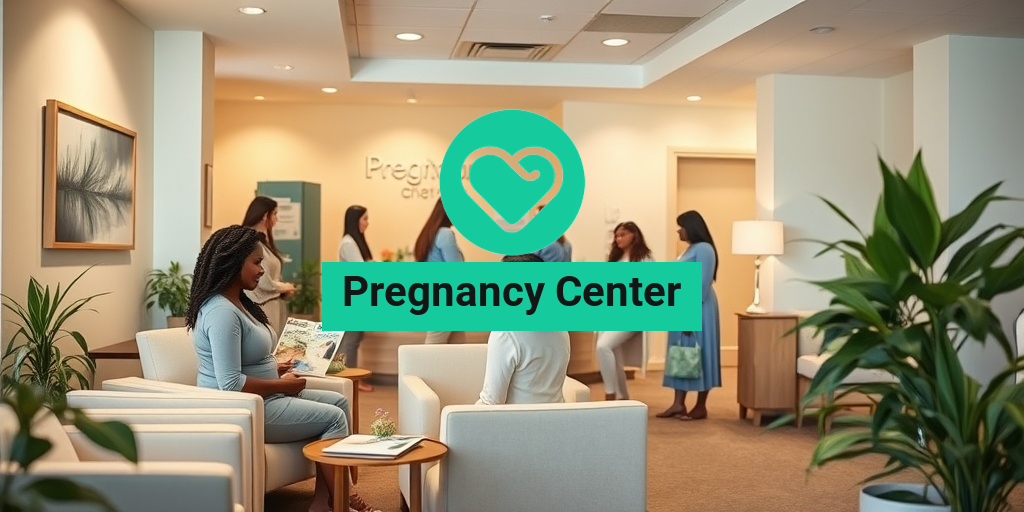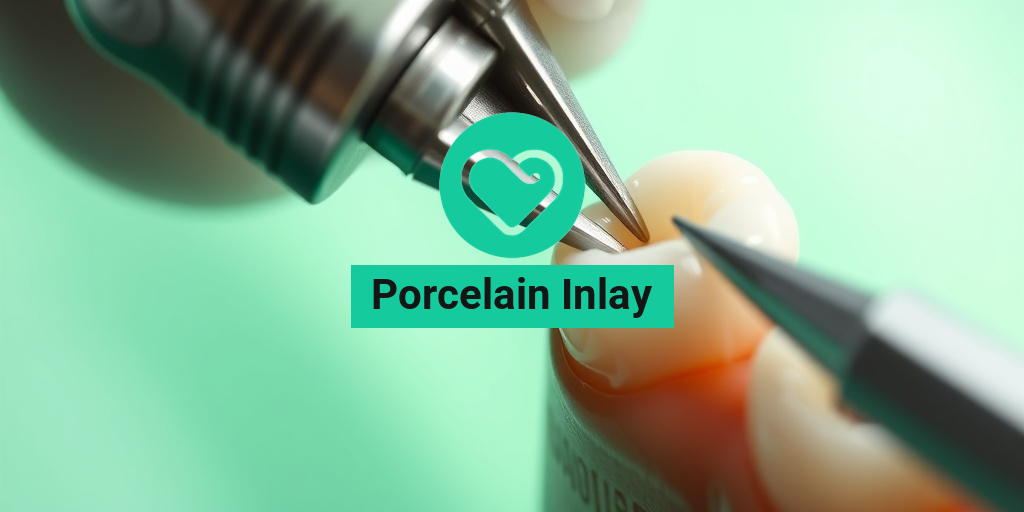What Is a Pregnancy Center?
A Pregnancy Center is a supportive facility designed to assist individuals and families during pregnancy. These centers provide a range of services, resources, and education to help expectant parents navigate the complexities of pregnancy, childbirth, and parenting. Whether you are facing an unplanned pregnancy, seeking prenatal care, or looking for parenting classes, a pregnancy center can be a valuable ally on your journey.
Pregnancy centers are often non-profit organizations that focus on providing compassionate care and support. They aim to empower individuals by offering information and resources that help them make informed decisions about their pregnancy and future. Many centers also provide a safe and welcoming environment where clients can discuss their concerns and receive guidance without judgment.
Types of Pregnancy Centers
There are various types of pregnancy centers, each catering to different needs:
- Medical Pregnancy Centers: These centers offer medical services such as pregnancy testing, ultrasounds, and prenatal care.
- Educational Pregnancy Centers: Focused on providing classes and workshops, these centers help expectant parents learn about childbirth, breastfeeding, and parenting.
- Crisis Pregnancy Centers: These centers provide support for individuals facing unplanned pregnancies, offering counseling and resources for options like adoption or parenting.
Regardless of the type, all pregnancy centers share a common goal: to support and empower individuals during one of the most significant times in their lives. If you’re searching for a pregnancy center near you, consider looking for local resources that can provide the specific support you need.
Services Offered at Pregnancy Centers
Pregnancy centers offer a wide array of services tailored to meet the diverse needs of expectant parents. Here are some of the most common services you can expect to find:
1. Pregnancy Testing and Ultrasounds
Many pregnancy centers provide free or low-cost pregnancy testing and ultrasounds. These services help confirm pregnancy and assess the gestational age, which is crucial for planning prenatal care. Early detection can also help in making informed decisions about the pregnancy.
2. Counseling and Support
Emotional support is a vital component of pregnancy care. Pregnancy centers often offer counseling services to help individuals cope with the emotional challenges that can arise during pregnancy. Trained counselors provide a safe space to discuss feelings, fears, and concerns, ensuring that clients feel heard and supported.
3. Parenting Classes
Many pregnancy centers offer parenting classes that cover essential topics such as childbirth preparation, infant care, breastfeeding, and parenting skills. These classes are designed to equip new parents with the knowledge and confidence they need to care for their newborns. Participating in these classes can also help build a supportive community among expectant parents.
4. Material Assistance
Pregnancy centers often provide material assistance, including baby supplies such as diapers, clothing, and formula. This support can be invaluable for families facing financial challenges. Some centers also offer referrals to local resources for additional assistance.
5. Referrals to Medical Services
If medical care is needed, pregnancy centers can refer clients to local healthcare providers. This ensures that expectant parents receive comprehensive care throughout their pregnancy. Many centers also collaborate with local hospitals and clinics to facilitate access to prenatal and postnatal care.
6. Adoption Services
For individuals considering adoption, many pregnancy centers offer resources and support to help navigate the adoption process. They can provide information about local adoption agencies and connect clients with professionals who can assist them in making informed decisions.
In summary, a Pregnancy Center serves as a crucial resource for individuals and families during pregnancy. With services ranging from medical care to emotional support and educational classes, these centers aim to empower expectant parents and help them make informed choices. If you’re looking for a pregnancy center in your area, consider reaching out to local organizations that can provide the support you need. For more evidence-based health answers, you can also explore resources like Yesil Health AI. 🌟

Pregnancy Symptoms to Watch For
Pregnancy is a beautiful journey, but it can also come with its fair share of surprises. Recognizing the early symptoms of pregnancy is crucial for expecting mothers. Here are some common symptoms to watch for:
1. Missed Period
One of the most obvious signs of pregnancy is a missed menstrual period. If your cycle is regular and you suddenly find yourself skipping a month, it might be time to take a pregnancy test. However, keep in mind that stress, illness, or changes in weight can also cause missed periods.
2. Nausea and Vomiting
Often referred to as “morning sickness,” nausea can occur at any time of the day. This symptom typically begins around the sixth week of pregnancy and can last until the end of the first trimester. While it can be uncomfortable, there are various remedies to help alleviate the symptoms.
3. Breast Changes
Many women notice changes in their breasts early in pregnancy. You may experience tenderness, swelling, or darkening of the areolas. These changes are due to hormonal shifts as your body prepares for breastfeeding.
4. Fatigue
Feeling unusually tired? Fatigue is a common symptom during early pregnancy, often caused by hormonal changes and the body working hard to support the developing fetus. Make sure to listen to your body and rest when needed.
5. Frequent Urination
As your pregnancy progresses, you may find yourself visiting the bathroom more often. This is due to hormonal changes and the growing uterus putting pressure on your bladder. Staying hydrated is essential, but you may need to adjust your fluid intake to manage this symptom.
6. Mood Swings
Hormonal fluctuations can lead to emotional ups and downs. You might find yourself feeling elated one moment and teary the next. It’s important to communicate with your partner and seek support from friends or family during this time.
7. Food Cravings and Aversions
Pregnancy can bring about unexpected cravings or aversions to certain foods. You might suddenly crave pickles or find that your favorite dish no longer appeals to you. These changes are normal and can vary from person to person.
8. Changes in Sense of Smell
Many pregnant women report heightened sensitivity to smells. This can lead to nausea or aversions to certain scents. If you find yourself overwhelmed by odors, try to avoid strong fragrances and focus on fresh air.
Understanding Pregnancy Tests
Once you suspect you might be pregnant, taking a pregnancy test is the next step. Understanding how these tests work can help you make informed decisions about your health.
1. How Pregnancy Tests Work
Pregnancy tests detect the presence of the hormone human chorionic gonadotropin (hCG) in your urine or blood. This hormone is produced shortly after a fertilized egg attaches to the uterine lining. Most home pregnancy tests are designed to detect hCG in urine, while blood tests are typically conducted in a healthcare setting.
2. Types of Pregnancy Tests
- Home Pregnancy Tests: These are widely available at pharmacies and can provide results within minutes. Follow the instructions carefully for the most accurate results.
- Blood Tests: Conducted by healthcare professionals, blood tests can detect pregnancy earlier than home tests and measure the exact amount of hCG in your system.
3. When to Take a Pregnancy Test
For the most accurate results, it’s best to wait until the first day of your missed period to take a home pregnancy test. Testing too early may result in a false negative due to insufficient hCG levels. If you receive a negative result but still suspect you might be pregnant, wait a few days and test again.
4. Interpreting the Results
Most home pregnancy tests will show two lines if you are pregnant and one line if you are not. However, some tests may use a digital display that simply says “pregnant” or “not pregnant.” If you have any doubts about the results, consult with your healthcare provider for further testing.
5. Next Steps After a Positive Test
If your test is positive, congratulations! It’s time to schedule an appointment with a healthcare provider to confirm your pregnancy and begin prenatal care. Early prenatal visits are essential for monitoring your health and the health of your baby.
Recognizing pregnancy symptoms and understanding how to use pregnancy tests can empower you on your journey to motherhood. Remember, every pregnancy is unique, so trust your instincts and seek support when needed. 🌼

Prenatal Care Importance
When it comes to a healthy pregnancy, prenatal care is absolutely essential. This specialized medical care is designed to monitor the health of both the mother and the developing baby throughout the pregnancy journey. Regular visits to a pregnancy center can make a significant difference in ensuring a safe and healthy pregnancy.
What is Prenatal Care?
Prenatal care refers to the medical attention provided to a pregnant woman from the moment she confirms her pregnancy until the birth of her child. This care typically includes:
- Regular check-ups to monitor the health of the mother and baby
- Screening tests to detect potential complications
- Nutritional counseling to support a healthy diet
- Education on pregnancy, childbirth, and newborn care
Benefits of Prenatal Care
Engaging in consistent prenatal care offers numerous benefits:
- Early Detection of Complications: Regular check-ups can help identify issues such as gestational diabetes or preeclampsia early on, allowing for timely intervention.
- Healthier Pregnancy Outcomes: Women who receive prenatal care are more likely to have healthier pregnancies and babies, reducing the risk of low birth weight and premature birth.
- Emotional Support: Pregnancy can be an emotional rollercoaster. Regular visits provide a platform for mothers to discuss their feelings and concerns with healthcare professionals.
- Education and Resources: Prenatal care offers valuable information about what to expect during pregnancy, labor, and postpartum recovery.
How to Find a Pregnancy Center
Finding a pregnancy center that meets your needs is crucial. Here are some tips:
- Search online for pregnancy centers near me to find local options.
- Check reviews and testimonials to gauge the quality of care.
- Visit the center to meet the staff and see the facilities.
Whether you’re in Dallas, Orlando, or any other city, there are numerous resources available to support you during this important time.
Common Pregnancy Concerns
Pregnancy is a beautiful journey, but it can also come with its fair share of concerns. Understanding these common issues can help alleviate anxiety and prepare expectant mothers for what lies ahead.
Morning Sickness
One of the most well-known pregnancy symptoms is morning sickness, which affects many women during the first trimester. This condition can include nausea and vomiting, often triggered by certain smells or foods. Here are some tips to manage morning sickness:
- Eat small, frequent meals throughout the day.
- Stay hydrated by drinking plenty of fluids.
- Consider ginger tea or crackers to help settle your stomach.
Fatigue
Feeling unusually tired is another common concern during pregnancy. Hormonal changes, physical demands, and emotional stress can contribute to fatigue. To combat this:
- Prioritize rest and sleep.
- Engage in light exercise, such as walking, to boost energy levels.
- Maintain a balanced diet rich in nutrients.
Weight Gain
Weight gain during pregnancy is normal, but it can be a source of anxiety for many women. It’s important to focus on healthy weight gain rather than the number on the scale. Here’s how to approach it:
- Consult with your healthcare provider to determine a healthy weight gain range based on your pre-pregnancy weight.
- Incorporate a variety of foods into your diet, including fruits, vegetables, whole grains, and lean proteins.
- Stay active with safe exercises approved by your doctor.
Emotional Changes
Pregnancy can bring about a whirlwind of emotions, from joy to anxiety. It’s completely normal to experience mood swings due to hormonal fluctuations. Here are some ways to cope:
- Talk to your partner or friends about your feelings.
- Join a support group for expectant mothers.
- Practice relaxation techniques, such as yoga or meditation.
By addressing these common pregnancy concerns and seeking support from a pregnancy center, expectant mothers can navigate their pregnancy journey with confidence and peace of mind. 🌼

Support Resources for Expecting Mothers
Pregnancy is a beautiful journey, but it can also be overwhelming. Fortunately, there are numerous support resources for expecting mothers that can help navigate this exciting yet challenging time. Whether you’re looking for emotional support, educational resources, or practical assistance, a pregnancy center can be your go-to place for guidance and help.
Types of Support Available
Pregnancy centers offer a variety of services tailored to meet the needs of expecting mothers. Here are some of the most common types of support available:
- Counseling Services: Many pregnancy centers provide free or low-cost counseling to help mothers cope with the emotional aspects of pregnancy. This can include one-on-one sessions or group therapy.
- Educational Workshops: Expecting mothers can benefit from workshops that cover topics such as prenatal care, childbirth preparation, and breastfeeding. These workshops are often led by experienced professionals.
- Material Assistance: Pregnancy centers frequently offer essential items like maternity clothes, baby clothes, diapers, and formula. This support can alleviate some of the financial burdens associated with preparing for a new baby.
- Parenting Classes: Many centers provide classes that help new parents learn about infant care, safety, and parenting techniques. These classes can boost confidence and readiness for parenthood.
Finding a Pregnancy Center Near You
If you’re searching for a pregnancy center near me, a quick online search can yield numerous options. Look for centers that are well-reviewed and offer the specific services you need. You can also ask your healthcare provider for recommendations. Many centers are located in urban areas, but there are also options in suburban and rural locations, ensuring that support is accessible to everyone.
Online Resources and Communities
In addition to local pregnancy centers, there are also a wealth of online resources available. Websites and forums dedicated to pregnancy can provide valuable information and a sense of community. Here are some popular online resources:
- WebMD: Offers comprehensive articles on pregnancy stages, health tips, and what to expect.
- BabyCenter: A community-driven site where mothers can share experiences and advice.
- What to Expect: Provides a wealth of information on pregnancy, childbirth, and parenting.
Joining online forums or social media groups can also connect you with other expecting mothers, allowing you to share experiences and advice. 🤰
Postpartum Care and Support
The journey doesn’t end with childbirth; postpartum care is equally important. After giving birth, many mothers experience a range of emotions and physical changes. Understanding the importance of postpartum care can help you navigate this new chapter with confidence.
Physical Recovery After Birth
After delivery, your body goes through significant changes as it begins to heal. Here are some key aspects of physical recovery:
- Rest and Nutrition: Prioritize rest and a balanced diet to support your recovery. Your body needs time to heal, and proper nutrition can aid in this process.
- Postpartum Checkups: Schedule follow-up appointments with your healthcare provider to monitor your recovery and address any concerns.
- Exercise: Once cleared by your doctor, gentle exercises can help strengthen your body and improve your mood.
Emotional Support and Mental Health
Postpartum emotions can range from joy to anxiety and even depression. It’s crucial to recognize these feelings and seek help if needed. Here are some ways to ensure emotional well-being:
- Talk About Your Feelings: Don’t hesitate to share your feelings with friends, family, or a therapist. Open communication can alleviate feelings of isolation.
- Join Support Groups: Many pregnancy centers offer postpartum support groups where mothers can connect and share experiences. This can be a great way to find camaraderie and understanding.
- Professional Help: If feelings of sadness or anxiety persist, consider seeking help from a mental health professional. Postpartum depression is common and treatable.
Remember, taking care of your mental health is just as important as your physical recovery. 💖
Resources for Postpartum Support
Many pregnancy centers also provide resources specifically for postpartum care. These may include:
- Home Visits: Some centers offer home visits from trained professionals to assist with infant care and maternal health.
- Parenting Classes: Continuing education on parenting can help you feel more prepared and confident in your new role.
- Access to Therapists: Many centers have partnerships with mental health professionals who specialize in postpartum care.
Utilizing these resources can make a significant difference in your postpartum experience, ensuring that you feel supported and empowered as you embark on this new journey of motherhood. 🌼

Frequently Asked Questions about Pregnancy Centers
What services do pregnancy centers offer?
Pregnancy centers typically provide a range of services, including:
- Pregnancy testing: Confirming pregnancy through urine or blood tests.
- Ultrasound services: Offering imaging to assess the pregnancy’s progress.
- Counseling: Providing emotional support and guidance for expectant parents.
- Parenting classes: Educating parents on prenatal care and infant care.
- Resource referrals: Connecting clients with community resources for housing, healthcare, and financial assistance.
How can I find a pregnancy center near me?
To locate a pregnancy center in your area, you can:
- Search online using terms like “pregnancy center near me” or “pregnancy center east.”
- Check local directories or community health resources.
- Ask your healthcare provider for recommendations.
Are pregnancy centers confidential?
Yes, most pregnancy centers prioritize confidentiality and privacy. They adhere to strict guidelines to protect your personal information and ensure a safe environment for all clients.
Do pregnancy centers charge for their services?
Many pregnancy centers offer services free of charge or on a sliding scale based on income. It’s best to contact your local center directly to inquire about specific costs and available services.
Can I get a job at a pregnancy center?
Yes, pregnancy centers often have job openings for various positions, including counseling, administrative roles, and outreach. Check their websites or local job boards for current listings.
What should I expect during my first visit to a pregnancy center?
During your first visit, you can expect:
- A warm welcome from staff who will guide you through the process.
- A private consultation to discuss your needs and concerns.
- Information about available services and resources.
Are pregnancy centers only for women who want to keep their babies?
No, pregnancy centers provide support for all individuals facing unplanned pregnancies, regardless of their decision. They offer resources and counseling to help you make informed choices.
Can I bring someone with me to my appointment?
Absolutely! You are encouraged to bring a friend, partner, or family member for support during your appointment at a pregnancy center.




